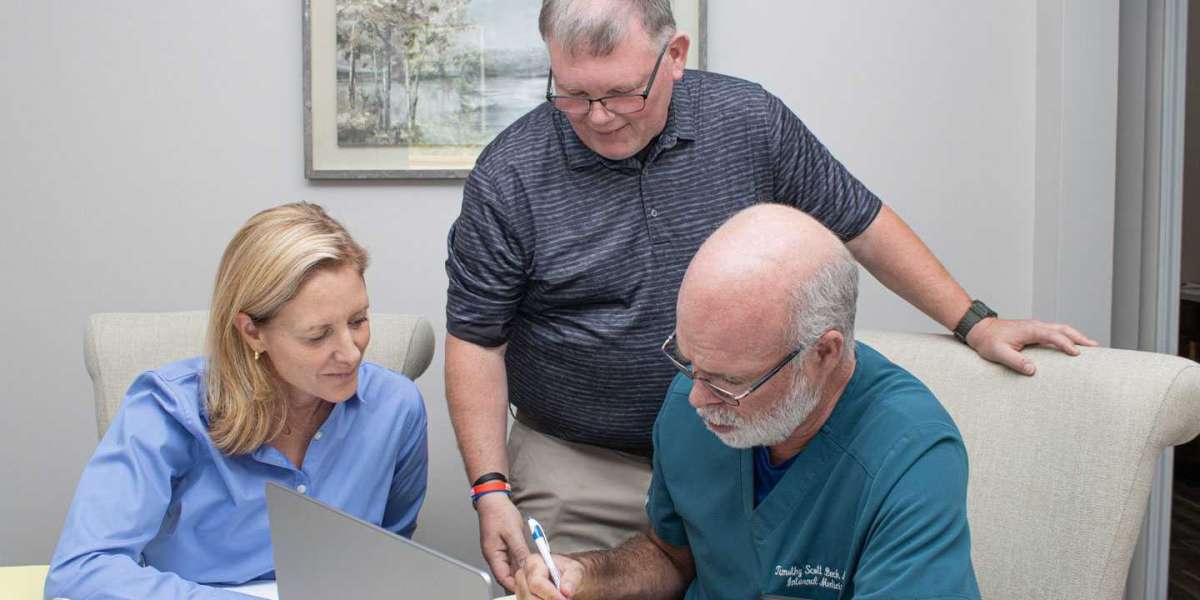When it comes to legal cases involving medical issues, selecting the right medical expert witness can significantly impact the outcome. Medical witnesses expert provide specialized knowledge and insights that can help clarify complex medical matters for judges, juries, and attorneys. Whether you're handling a personal injury claim, a malpractice suit, or a workers' compensation case, the right expert can be the difference between winning and losing. In this blog post, we’ll explore how to choose the best medical expert witness for your case.
1. Understand the Medical Issue at Hand
Before you start looking for an expert, take time to thoroughly understand the specific medical issue that is central to your case. Is the case about brain injury, orthopedic injuries, surgical errors, or perhaps a chronic illness? The medical expert witness you choose must have direct experience with the condition or issue at the heart of the case. For example, if your case involves a car accident leading to spinal cord injuries, an expert in neurology or orthopedic surgery would be ideal, as they have the expertise to speak to the nature and prognosis of spinal injuries.
2. Evaluate the Expert’s Credentials
The expert’s qualifications are perhaps the most important consideration when choosing the right witness. A reputable medical expert witness should have:
- Board Certifications: The expert should be board-certified in their medical specialty, which demonstrates that they have received advanced training and have met rigorous standards within their field.
- Experience: An ideal medical expert should have extensive experience in both the clinical practice of medicine and the specific condition involved in the case. An expert who has treated many patients with the same condition is likely to be more persuasive in court.
- Academic Background: In addition to hands-on clinical experience, a well-regarded expert may have academic credentials, such as publications in peer-reviewed medical journals or teaching positions at medical schools. These credentials demonstrate expertise and enhance the expert’s credibility.
3. Look for an Expert Who Can Communicate Effectively
A great medical expert witness isn’t just an expert in their field—they must also be able to explain complex medical concepts in a way that is clear and understandable to a lay audience, including judges and jurors who may not have a medical background. The ability to simplify medical terminology without sacrificing accuracy is crucial. A good expert can break down complicated issues in a concise, persuasive manner.
Additionally, it's important to assess their ability to testify under pressure. A calm, confident, and articulate expert can handle the stress of cross-examination, while a nervous or evasive expert can weaken your case.
4. Assess the Expert’s Reputation and Availability
Reputation matters. The opposing side will likely scrutinize the expert’s background, so choosing someone with a solid reputation in their field can bolster your case. This includes not just their credentials, but also their history of providing objective and reliable testimony.
Check for:
- Past Testimonies: An expert with a history of testifying in court demonstrates familiarity with the process. You can ask for examples of previous cases they've worked on and whether their testimony was well-received by the court.
- Professional Standing: Look into the expert’s professional associations, membership in medical boards, and whether they’ve received any disciplinary actions.
Availability is another key factor. Medical expert witnesses often have busy schedules, so make sure that the expert you choose has the time to thoroughly review your case and be present for depositions and trial testimony.
5. Evaluate the Expert's Objectivity
A good medical expert witness must remain impartial, even if they are hired by one side of the case. They should be willing to testify truthfully, regardless of whether their opinion supports your argument. While it’s natural for experts to have opinions based on their experience and knowledge, their testimony should always be rooted in evidence, not bias. An expert who is perceived as “too friendly” with the party that hired them can damage the credibility of the case.
6. Consider Costs and Logistics
Finally, keep in mind that hiring a medical expert witness can be expensive. Costs vary based on the expert’s specialty, reputation, and the complexity of the case. While it’s important to select an expert who meets the qualifications outlined above, you also need to ensure that their fees fit within your budget. Some experts may charge for their time spent reviewing medical records, preparing reports, or attending depositions and trial sessions, so be sure to clarify these costs upfront.
Conclusion
Choosing the right medical expert witness can be a decisive factor in the outcome of your case. By thoroughly vetting potential candidates based on their credentials, experience, communication skills, and impartiality, you can ensure that you select an expert who will strengthen your case and provide clear, reliable testimony. Taking the time to choose wisely will not only help your legal strategy but also instill confidence in the jury and judge.














